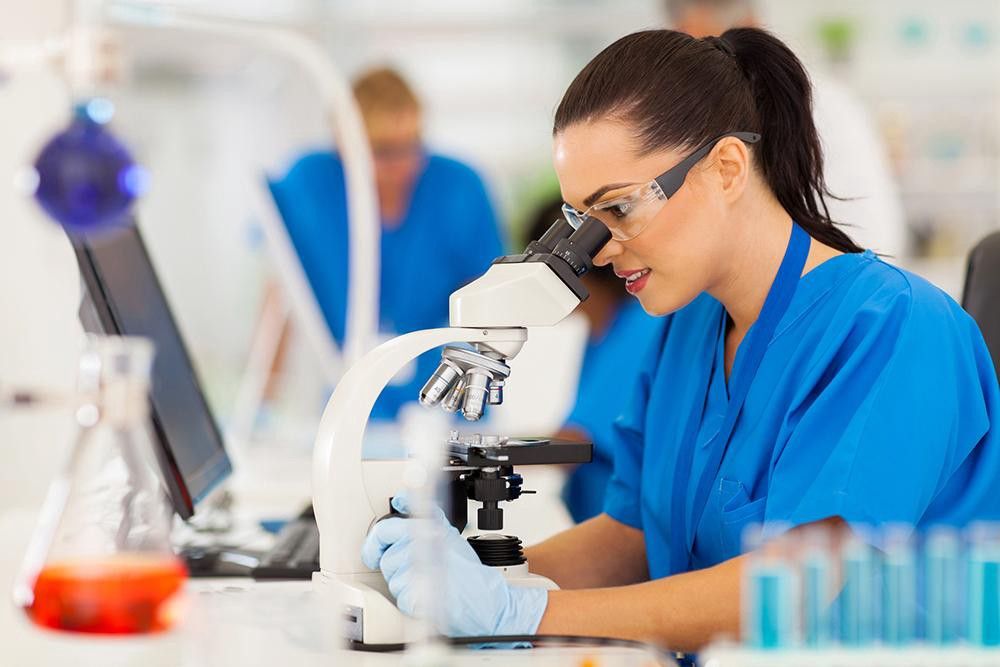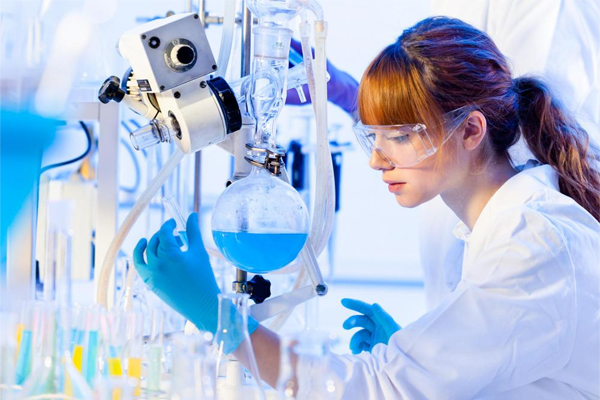
The field of healthcare is evolving rapidly, driven by advancements in medical technology, increased demand for diagnostic services, and a rising emphasis on efficient healthcare systems. Among the various career paths in the healthcare industry, B.Sc Medical Lab Technology (MLT) has emerged as a promising choice, offering rewarding opportunities for individuals seeking a career in the medical field. Let’s explore why the B.Sc MLT course has become a popular and growing career option in India.
1. Growing Demand for Trained Healthcare Professionals
The healthcare sector in India is expanding at a significant pace due to rising healthcare awareness, an increase in medical infrastructure, and a surge in the need for diagnostic services. According to a report by the Ministry of Health and Family Welfare, India’s healthcare sector is expected to reach $372 billion by 2022. This growth translates into a growing demand for skilled healthcare professionals, particularly in medical laboratory technology.
A B.Sc MLT course trains students in various diagnostic techniques, medical lab procedures, and the use of advanced medical equipment. As hospitals, diagnostic centers, and clinical laboratories expand, the need for qualified medical lab technicians increases, making B.Sc MLT a highly sought-after career.
2. Role of Medical Lab Technologists in Healthcare
Medical lab technologists play a crucial role in the healthcare system by conducting tests, analyzing samples, and providing crucial diagnostic reports that aid doctors in making informed decisions regarding patient care. A B.Sc MLT course provides students with the knowledge and skills required to perform laboratory tests efficiently. These tests help in diagnosing and treating diseases accurately, ensuring timely medical interventions.
Some of the key responsibilities of medical lab technologists include:
- Performing Diagnostic Tests: Blood tests, urine tests, imaging, and pathology testing are some of the diagnostic procedures handled by medical lab technologists.
- Operating Advanced Medical Equipment: Technicians are trained to use equipment such as microscopes, automated analyzers, and imaging devices, essential for diagnosing conditions like infections, cancers, and genetic disorders.
- Maintaining Laboratory Standards: They ensure quality control, adhering to safety and hygiene standards, which is crucial for accurate diagnostic results.
With the increasing prevalence of chronic diseases like diabetes, cancer, and cardiovascular conditions, the demand for lab technicians has surged, positioning B.Sc MLT as a critical career path.
3. Diverse Career Opportunities in Medical Lab Technology
A B.Sc MLT course offers a wide range of career opportunities across different sectors of healthcare. Some of the most sought-after roles for MLT graduates include:
- Medical Lab Technologist: Working in hospitals, diagnostic labs, and healthcare centers, they handle routine and advanced diagnostic tests.
- Clinical Research Associate: Collaborating with research institutions to conduct clinical trials and study the effectiveness of new treatments and therapies.
- Hospital Lab Manager: Overseeing the operations of a hospital lab, ensuring compliance with quality standards and managing lab staff.
- Pathologist Assistant: Supporting pathologists in analyzing tissue samples and diagnosing diseases.
- Radiology Technician: Specializing in imaging tests such as X-rays, MRI, and CT scans.
- Forensic Lab Technician: Working in forensic labs, examining biological samples related to criminal investigations.
The medical lab technology field offers both clinical and non-clinical roles, giving students a wide variety of career options to choose from, depending on their interests.

4. Skill Development and Technical Expertise
A B.Sc MLT course focuses on building both technical expertise and soft skills essential for a successful career. The curriculum typically includes:
- Clinical Biochemistry: Study of bodily fluids for diagnosis.
- Microbiology: Identifying microorganisms like bacteria and viruses.
- Haematology: Blood-related disorders and tests.
- Pathology: Study of diseases through tissues and samples.
- Clinical Biochemistry and Genetics: Understanding the molecular aspects of diseases.
Students also learn to operate diagnostic instruments, manage laboratory procedures, and maintain high standards of hygiene and safety. The technical knowledge gained ensures graduates are prepared to handle modern diagnostic tools and contribute to healthcare advancements.
5. Prominent Institutions Offering B.Sc MLT Courses in India
India is home to several reputed institutions offering B.Sc MLT courses, providing high-quality education and hands-on training. Some of the prominent institutions include:
- Institute of Medical Technology, Chennai
- All India Institute of Medical Sciences (AIIMS), New Delhi
- Jamia Millia Islamia, New Delhi
- KEM Hospital, Mumbai
- Christian Medical College, Vellore
- ITM Institute of Health Sciences, Navi Mumbai
These institutions have state-of-the-art labs, experienced faculty, and industry partnerships that ensure students gain practical knowledge and exposure.
The healthcare sector is expanding rapidly, creating immense demand for skilled professionals in medical lab technology. A B.Sc MLT course offers a rewarding career in diagnostics, with opportunities in hospitals, research centers, and healthcare organizations. With increasing health awareness, higher diagnostic demands, and government initiatives driving healthcare growth, the scope of B.Sc MLT is expected to grow even further. If you are passionate about healthcare and have an interest in lab-based diagnostics, pursuing a B.Sc MLT course could be a perfect fit for a thriving career in medical lab technology.



